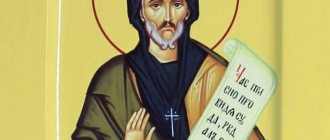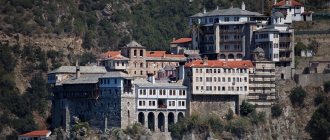Allah Almighty said:
“If you are grateful, I will give you even more.” (14:7)
Prophet Muhammad, peace and blessings of Allah be upon him, said:
“When morning comes, every joint of any of you should give sadaqah (alms)! Every glorification of Allah (“Subhanallah”) is charity. Every praise of Allah (“Alhamdulillah”) is charity. Every utterance of the words “la ilaha illa Allah” (“There is no god but Allah”) is almsgiving. Every exaltation of Allah (“Allahu Akbar”) is charity. Encouragement to do what is approved - charity and abstinence from what is blameworthy - is also sadaqah (alms). But all this can be replaced by two rak’ahs of an additional zuha prayer!” (Muslim)
There are 360 joints in the human body , and for each one you need to give alms in order to maintain the health and integrity of your body. All tasbihs are alms, good deeds are alms, but all of this is equated (the same sadaqah) with only two rakats of the additional prayer of az-zuha (Arabic الضحى - ad-Duha, az-Zuha - “morning”).
Advantages of Zuha prayer
The Prophet, peace and blessings of Allah be upon him, said:
“Whoever performed the morning prayer in the jamaat, after which he remained seated and remembered Allah until the sun rose, and then performed two rak'ahs of prayer, will receive a reward as for performing a full, complete, full-fledged Hajj and Umrah.” .
The Prophet, peace and blessings be upon him, confirmed the usefulness of such prayer three times.
The Messenger of Allah himself, peace and blessings be upon him, regularly performed namaz-zukha and said that the one who regularly performs namaz-zukha will be one of the repentant slaves (tawabbin).
What is Az Zuha prayer?
Allah Almighty said:
“If you are grateful, I will give you even more” (14:7)
Prophet Muhammad, peace and blessings of Allah be upon him, said:
“When morning comes, every joint of any of you should give sadaqah (alms)! Every glorification of Allah (“Subhanallah”) is charity. Every praise of Allah (“Alhamdulillah”) is charity. Every utterance of the words “la ilaha illa Allah” (“There is no god but Allah”) is almsgiving. Every exaltation of Allah (“Allahu Akbar”) is charity. Encouragement to do what is approved - charity and abstinence from what is blameworthy - is also sadaqah (alms). But all this can be replaced by two rak’ahs of an additional zuha prayer!” (Muslim)
There are 360 joints in the human body , and for each one you need to give alms in order to maintain the health and integrity of your body. All tasbihs are alms, good deeds are alms, but all of this is equated (the same sadaqah) with only two rakats of the additional prayer of az-zuha (Arabic الضحى - ad-Duha, az-Zuha - “morning”).
How to perform Zuha prayer?
The smallest number of rakats for zuha prayer is two rakats . You can perform prayers of four, six or eight rak'ahs. The maximum number is twelve rak'ahs.
Performing rak'ahs in pairs is the sunnah of the Prophet Muhammad, peace and blessings of Allah be upon him.
In the first rak'ah after Surah 1 "al-Fatiha" ("Opening the Qur'an"), read Surah 91 "ash-Shams" ("Sun") and Surah 109 "al-Kafirun" ("The Unbelievers / Infidels"), and in the second - Sura 93 “ad-Dukha” / “az-Zuha” (“Morning”) and Sura 112 “al-Ikhlas” (“Purification of Faith”). Next (if you want to perform more than two rakats): in odd rakats they read “al-Kafirun”, and in even ones - “al-Ikhlas”.
If you intended to perform Zuha prayer but missed it, it is sunnah to make up for this prayer.
Nafil prayers are a gift from Allah
The Messenger of Allah (peace and blessings of Allaah be upon him) said: “ Tasbih prayer is the greatest gift of Allah, and the reward for this prayer is the forgiveness of all sins, old and new, regardless of whether they were done secretly or openly, out of ignorance or knowingly. So try to perform tasbih prayer daily, and if you cannot, then once a week (preferably on Fridays) or once a month. If you cannot do this, then once a year, and, finally, as a last resort, at least once in your life” (narrated by Abu Dawud, ibn Majah and Bayhaki). “It is necessary to follow especially this sunnah for people who are mired in sins and do not know their number, like us” (Imam Sharani) .
Abdullah the son of Mubarak said: “It is advisable to get used to performing the tasbih prayer at any time and not forget about it.”
Namaz before afternoon prayer
Number of rakats: from 2 to 4 as desired.
Time of execution: before the afternoon prayer, i.e. after the time for the afternoon prayer and before it is performed. The Prophet (peace and blessings of Allaah be upon him) said:
«Whoever prays four rak'ahs before the afternoon prayer will not be touched by the fire of Hell.»
It is also reported that the Prophet (peace and blessings of Allaah be upon him) performed this prayer in two rak'ahs. Because of this, Kuduri said that one can choose between these two numbers of rak'ahs.
Namaz before night prayer
Number of rakats: 4.
Time of execution: before night prayer, i.e. after the time of night prayer and before it is performed. It is reported from the mother of the faithful, Aisha (may Allah be pleased with her), that the Prophet (peace and blessings of Allah be upon him) performed four rak'ahs before the night prayer.
Avvabin prayer
Number of rakats: from 6 to 20 as desired.
Time of performance: between the fourth and fifth prayers, i.e. after sunset and after performing the fourth prayer (al-Maghrib).
Sayings of the Messenger of Allah (peace and blessings of Allaah be upon him): “Whoever performs 6 rakats after the fourth prayer of al-Maghrib before the time of the fifth prayer of al-Isha without evil talk will receive a reward as for 12 years of ibadat (worship) .
“Whoever performs 6 rak'ahs after praying al-Maghrib will receive forgiveness of his sins, even if there are as many of them as foam in the ocean.” (narrated by Tabrani).
“Whoever performs 20 rak’ahs after praying al-Maghrib, Allah will grant him a home in paradise.”
The 6 rakats mentioned in the hadith include 2 rakats of the muakkad sunnah and 4 additional sunnahs.
Zuha prayer
Number of rakats: from 2 to 12. It is better to perform from 4 to 12 rakats.
Time of execution: after sunrise after the expiration of the undesirable time (makruh) for performing prayers, and ends with the sun approaching its zenith (20-40 minutes before the onset of prayer al-Zuhr).
Prophet Muhammad (peace and blessings of Allaah be upon him) said: “Whoever constantly recites 2 rakats of the Zuha prayer will have his (small) sins forgiven, even if there are as many of them as foam in the sea” (Ibn Majah).
“Every morning you need to give sadaka for each of your joints. Every tasbih (“Subhanallah”) is sadaqa, every tahmid (words “Alhamdulillah”) is sadaqa, every tahlil (words “La ilaha illallah”) is sadaqa, every takbir (words “Allahu Akbar”) is sadaqa. And the incentive to do what is approved is sadaqa, and keeping from what is blameworthy is sadaqa. But all this is replaced by two rakats of prayer-zuha” (Muslim).
The Messenger of Allah (peace and blessings of Allah be upon him) said: “The sins of the one who regularly performs namaz-zuha will be forgiven.”
It is reported from the son of Darda that the Messenger of Allah (peace and blessings of Allaah be upon him) said: “Whoever performs 2 rak'ahs of the Zuha prayer will not be considered lazy; whoever performs 4 rak'ahs will be among the devotees; whoever performs 6 rakats will be free from all worries throughout this day; whoever performs 8 rak'ahs will be among the pious; and for the one who performs 12 rak'ahs, Allah will build a palace of gold in Paradise" (narrated by Ibn Majah, Tirmidhi).
One of the benefits of the Zuha prayer is that if a person constantly performs this prayer, the jinn will move away from him.
Tahiyat prayer
Number of rakats: 2. The book “Kahastani” indicates 2 or 4.
Time to perform: after entering the mosque and before sitting down. Here are the words of the Prophet (peace and blessings of Allaah be upon him): “When one of you enters the mosque, he should not sit down until he has completed two rak’ahs.”
“If this time is not makruh; if a person entering the mosque immediately performed some other prayer (fard or sunnah), then this replaces this prayer of greeting.”
If a person enters the mosque during Juma prayer, then the tahiyatul masjid is not read. The Book of “Kahastani” states: “Whoever comes to the mosque after morning prayer and after Asr prayer does not read tahiyatul masjid, but reads tasbihs and salawat, and by doing this he fulfills the rights of the mosque. In the Book of Durar from Ziya (may Allah be pleased with him) it is said: “Whoever is unable to perform tahiyatul masjid due to lack of ablution or for other reasons, he should say tasbih four times: “Subhana Allah wal-hamduli-llahi wa Laya ilyaha illahu wa llahu Akbar . If a person enters the same mosque several times a day, then one prayer of greeting is enough. It is advisable to say when entering the mosque: “Allahummaftah li abwaba rahmatik ,” and when leaving: “Allahumma asaluka min rahmatik .”
Wudhu prayer
Number of rakats: 2.
Time to perform: the prayer of ablution is performed immediately after ablution (before the water dries on the surfaces of the washed parts of the body), if this time is not makrooh. The Book “Mishkat” says: “If after ablution one performs farz prayer, then a person will receive a reward for this prayer just as he will receive a reward for praying the tahiyatul masjid.”
The Prophet Muhammad (peace and blessings of Allaah be upon him) said: “Whoever of you performs ablution in the best way, after which he performs two rakats of prayer, doing this with deep sincerity, he certainly deserves Paradise” (Muslim).
Hajjat (need) prayer
Number of rakats: in the book “Marakil Falah” it is said – 2 rakats, in the book “Durar” – 4 rakats, in the book “Havi” – 12 rakats.
Time of fulfillment: when there is a need to receive something permitted or to avoid trouble.
It is narrated from Abdullah the son of Abu Awf (may Allah be pleased with him) that the Prophet (peace and blessings of Allah be upon him) said: “Whoever has a need for Allah or any of the sons of Adam u, then let him perform ablution in the best way and after perform two rak'ahs, then praise the Creator and bless His Messenger (peace and blessings of Allah be upon him), then say: “La ilaha illa llahul Hakimul Karim, subhana Rabbil Arshil Azim, Alhamdulillahi Rabbil Alamin, asaluka mujibati rahmatik wa azaima magfiratiq wal ghanimata min kulli bir wa salamata min kulli ism la tada li zanban illa gafartah wa la gamman illa farrajtah wa la hajata laka fiha riza illa qazaitaha ya Arhama Rahimin .
The book “Tajnis” says: “The prayer of need consists of 4 rak’ahs, and one of the hadiths says that in the first rak’ah the surah “Fatihah” is read once and the verse al-Kursi three times, and in the next three rak’ahs it is read once each “Fatiha”, “Ikhlas”, “Falak” and “Nas”, and the person will receive reward as if he performed this prayer on the night of Lailat ul-Qadr.
Our theologians said: “We performed this prayer, and our needs were fulfilled .
Tawbu prayer
Number of rakats: 2.
Time to perform: Can be performed at any time except sunrise, sunset and midday. We must be constant in this prayer every time we fall into sin, even if the sin is repeated every day 70 times or more, because cleansing from sin occurs at the beginning of each worship, like ablution at the beginning of prayer. (Imam Sharani)
Tawbu prayer is a prayer of repentance. When a person commits a big or small sin, he immediately moves away from the mercy of Allah. To receive the Creator’s mercy again, you need to sincerely repent before the Almighty and ask for forgiveness. In a hadith, the Messenger of Allah (peace and blessings of Allaah be upon him) taught us the correct and most appropriate way to ask Allah for forgiveness: “If a person commits a sin, gets up to purify himself, then performs prayer and then asks Allah for forgiveness, then there cannot be so that Allah will not forgive him . (Tirmidhi, hadith 406)
It is recommended to perform sincere tawbah before Allah in the following order: first perform ablution or sunnah bath (marakil falah) properly, then perform a prayer consisting of two rak'ahs, and after finishing the prayer, sincerely ask Allah for forgiveness. This prayer is called “salaat-ut-tauba” (tauba prayer).
Two rakats of tawba prayer are similar to any other nafl prayer. There are no specific surahs to be recited during it. There is also no special dua that needs to be pronounced in this prayer, in addition to those duas that are usually pronounced during prayer.
After completing the prayer, raise your hands in dua: start by praising Allah, greeting the Prophet (peace and blessings of Allah be upon him) and ask the Almighty for forgiveness of your sins with complete regret and repentance.
Remember what the Messenger of Allah (peace and blessings of Allah be upon him) said about shedding tears for the sake of Allah:
“A believer from whose eyes tears fall out of fear of Allah and whose face they touch, that part of his face will become forbidden to the fire of hell, even if the tear is only the size of a fly’s head.”
During tawbah it is recommended to recite Said-ul-istighfar :
Transliteration: “Allahumma Anta Rabbi la ilaha illya Ant. Khalyaktani ua ana 'abdukya ua ana 'ala 'ahdikya ua ua'dikya masta to'tu. A'uzu bika min sharri ma sona'tu. Abu-u lakya bi ni'matika 'alaya ua abu-u lakya bi zambi fagfirli fa innahu la yagfiruz zunuba illya Anta .
Translation: “O Allah! You are my Guardian. There is no god but You. You created me and I am Your slave. And, as far as possible, I keep my oath and covenant (which I made to You). I seek Your protection from the consequences of my misdeeds. I fully acknowledge the grace You have bestowed upon me and I admit my mistakes. So forgive me my sins, because no one but You can forgive sins!”
The Messenger of Allah (peace and blessings of Allah be upon him) said:
“ Whoever says this during the day, being firmly convinced of it, and dies on the same day before evening falls, he will be among the inhabitants of paradise. And whoever says this at night, being firmly convinced of it, and dies before the morning, will be among the inhabitants of paradise.” (“Sahih” Al-Bukhari, hadith 594)
Finally, the one who has sinned and now wants to repent and once again gain the love of Allah, His special favor and mercy, must constantly remember that the Creator is always ready to forgive His servant as long as he is full of sincerity and repentance, no matter how serious and great his sins. In the Hadith Qudsi the Creator says:
“O humanity! Even if your sins reached the clouds in the sky (because there are so many of them), and you asked Me for forgiveness, I would certainly forgive you! And I wouldn’t even bother!”
The Messenger of Allah (peace and blessings of Allah be upon him) said: “If someone who has committed a sin repents, then performs ablution (wudhu) and performs prayer, sincerely asking Allah for forgiveness, then Allah will forgive him” (narrated by Tirmidhi).
Sheikh Ismail mentioned: . ”
Safar prayer
A traveler should pray two rak'ahs at each place where he stops before he sits down, because this is what the Messenger of Allah (peace and blessings of Allaah be upon him) did. This is quoted by Imam Sarkhasi in the book Sharh Sayri Kabir .
Two types of nafil prayers
1) Nafil prayers, which are performed in addition to the obligatory prayers. These prayers include Sunnah prayers, which are performed before or after fards, and Taraweeh prayers, which are performed every night during the month of Ramadan.
2) Nafil prayers, which are performed regardless of fards. Such nafil prayers are also called mustahab or mandub. They take place at different times.
The rest of the prayers are considered not strengthened by the sunnat, for example: namaz-istikhara, hajat, zukha, tahajjut and others. In these prayers, before getting up for the third rak'ah, if the prayer is four-rak'ah, salawat is read along with at-tahiyat and on the third rak'ah they begin istiftah, i.e. "Subhanakallahumma", and after that they read surah "Fatiha", adding another sura, and continue as usually. The strengthened Sunnat is performed as a fard, because due to its strengthening it has become similar to a fard prayer, but in the third and fourth rak'ah the surah is read along with the Fatiha.
Sheikh Ismail said: “From the nafil prayers - two rakats in the rain, two rakats secretly to cleanse from hypocrisy, prayer when entering home and when leaving, avoiding harm.” May Allah grant us useful knowledge and give us the strength to follow it! Amine!
About the minimum age for Qurbani and other issues | Jukm according to the Hanafi madhhab
5 simple duas exclusively for the month of Ramadan: infographics
10 Inspiring Teachings of the Prophet (ﷺ)
Eating etiquette according to Islam
Dua, which is recommended to be read after zuha prayer
اللّهُمَّ إن الضُّحاءَ ضحاؤك والبهاءَ بَهاؤك والجَمالَ جمالك والق All rights reserved. أنزله وإن كان في الارض فأخرجه وإن كان مُعسَّرا فيَسِّره وإن كان حرام ا فطهِّره وإن كان بعيدا فقرِّبه بحق ضحائك وبهائك وجمالك وقوتك وقدرتك آتني ما آتيت عبادك الصالحين
Allagyumma anna zzuhaa zu-hauka, wal-bahaa bahauka, valjamala jamaluka, val quwwata quwwatuqa wal-kudrata kudratuqa, wal-ismata ismatuka. Allahumma in kana rizki fissamai fa anzilhu, wa in kana fil arzi fa akhrijhu, wa in kana muassaran fayassirgyu, wa in kana haraman fattahhirgyu, wa in kana ba'idan fakarribhu, bi hakki zuhaika, wa bahaika wa jamalika, wa quwwatika, wa kudratika , atini ma atayta ibadaka ssalihina.
Translation: “O my Allah, the time of zuha (morning time) is Your time, and values are Your values, and beauty is Your beauty, and strength is Your strength, and power is Your power, and protection is Your protection. O my Allah, if the mercy and wealth that I will become the owner of are in the heavens, send them down to earth, if in the earth, bring them out, if they are difficult to reach, make it easier for me to achieve them, if they are forbidden, make them permissible, if they are far away, bring them closer to me. For the sake of Your (time) zuha (morning), values and beauty, strength and power, give me what You give to Your righteous servants.”
Allah Almighty knows best
When copying, a hyperlink to MuslimClub.ru is required











